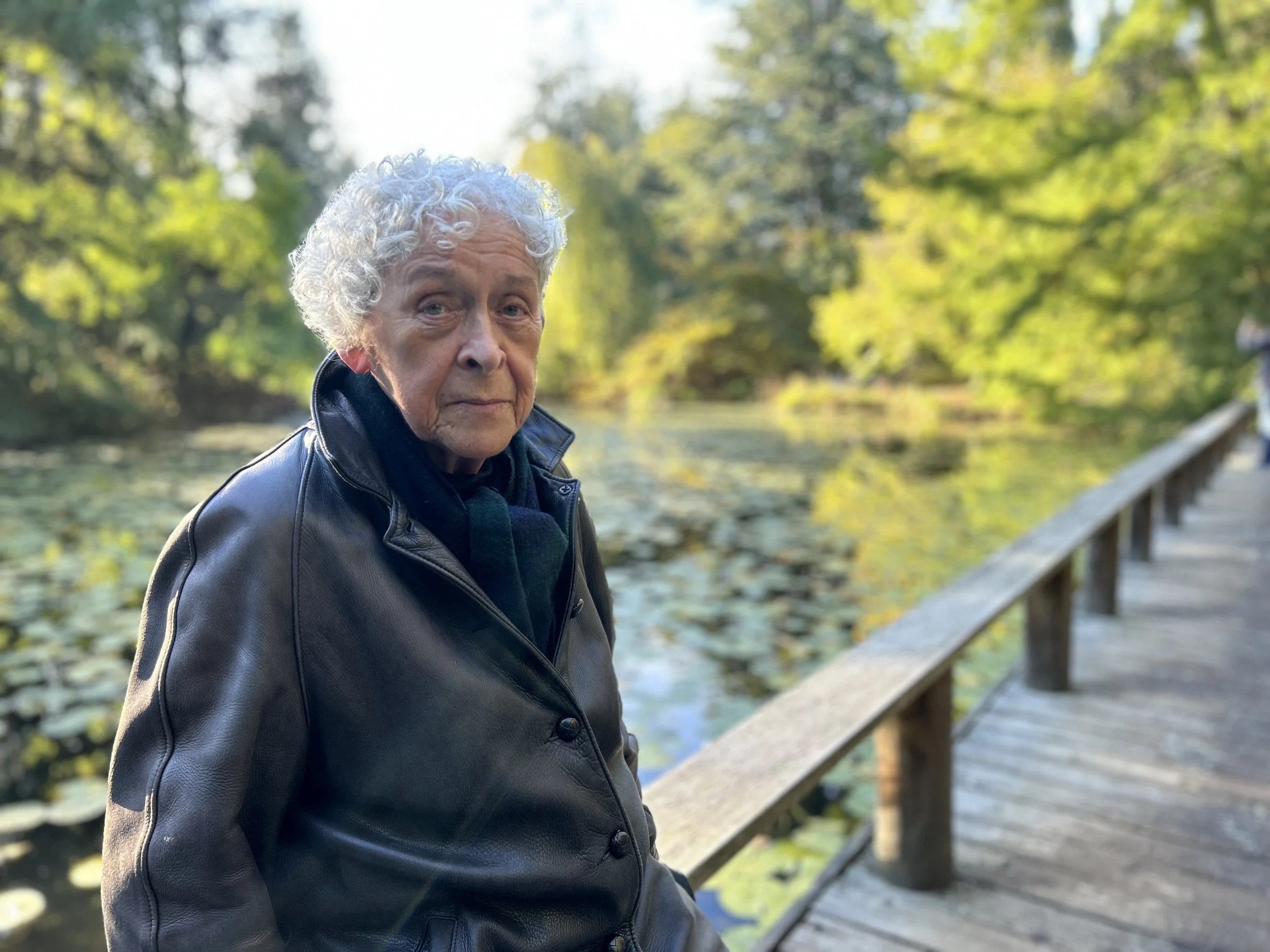Vancouver Folk Music Festival cofounder Gary Cristall, musician Dan Mangan, and more express early reactions to fest's looming demise
“I don’t see why you would kill such a thing after all these years”, says Cristall; BC Ministry of Tourism, Arts, Culture and Sport also weighs in
Singer-songwriter Jill Barber. Photo by Jessica Jacobsen
Musician Dan Mangan.
Vancouver Folk Music Festival cofounder and longtime producer Gary Cristall.
EXPRESSIONS OF HEARTBREAK and surprise are greeting news that the Vancouver Folk Music Festival could go under. Musicians are expressing sadness over the potential loss of the event that helped launch their careers, and a city politician warns of the ongoing impact of the pandemic on the arts scene; and one folk fest cofounder is questioning why the news of the imminent demise is only becoming public now. Plus, a provincial politician breaks down related funding the festival has recently received.
Festival cofounder Gary Cristall, who helmed the massive Jericho Beach Park concert event for 17 years, lamented, “I don’t see why you would kill such a thing after all these years without making an effort to survive.
“They’ve never made it public that the fest was endangered until now,” he added in an interview with Stir. “You’d expect the board to make a call for help. I know people still involved, and who have been for a long time, who were surprised.”
As reported by Stir, Vancouver Folk Music Festival Society announced today that rising operational costs and lack of ongoing COVID recovery funds were among the factors forcing it to cancel this year’s festival. On February 1, the society hosts its annual general meeting, where members will vote on dissolving the entire organization after 45 years. The board said in an announcement today that it had exhausted every avenue for fiscal survival; you can read a full FAQ sheet it put out today here.
Cristall encouraged society members to take action and not give up: “What should be done right now is people who are members of the society should discuss among themselves what they want to do at the upcoming board meeting.”
The longtime producer and presenter—who is writing a book about the history of folk music in Canada, launched Aural Tradition Records and Festival Records, and has worked for the Canada Council for the Arts—pointed out that the organization had survived “precarious positions” in the past.
“There are scores of folk festivals—hundreds of them—and they’ve all bounced back remarkably well from COVID,” he added.
Meanwhile, musicians across town are expressing sadness over the looming loss of the event they’ve performed at.
TWO-TIME JUNO-WINNING Vancouver-based singer-songwriter Dan Mangan, cofounder of Side Door, says that besides being widely beloved by fans and artists alike, the fest was a galvanizing force in his own professional trajectory.
“The saddest thing to me is that it feels like we’ve lost a public asset, a non-profit grown with soul over decades,” Mangan tells Stir. “They could truly take an artistic stance with the direction and curation, rather than just try to sell tickets, and they not only introduced the city to countless amazing acts from all over the world, they created a platform for local acts to cross-pollinate and find community with those international acts. Weird teens from all over the city could volunteer and find their people every summer—like summer camp.
“My weekend in 2009 completely transformed my career here at home,” Mangan adds. “Prior to that weekend, I could sell maybe 150 tickets at The Media Club. I think my next show after that was at The Vogue.”
Vancouver-based three-time Juno-nominated singer-songwriter Jill Barber put it this way: “Oof, this hurts.”
“I really feel for the board members having to arrive at this heartbreaking decision,” Barber tells Stir. “The Vancouver Folk Fest has an incredible legacy of showcasing cutting-edge international acts while also fiercely supporting its local artists. I feel deeply grateful to have graced its famous mountain-backdropped stages. The Vancouver music-loving community is really going to mourn the loss of this great institution. It’s a stark reminder of the fragility of the live music ecosystem.”
Juno-nominated cellist and composer Cris Derksen posted on social media: “Vancouver folk fest is where my baby performer dreams were made at 18—I decided to move to Vancouver because of this fest. I played my first folk fest here with legends and friends.”
CITY OF VANCOUVER councillor Sarah Kirby-Yung, meanwhile, describes the news as “really disappointing” in a phone interview with Stir.
“It’s heart-wrenching to hear we could be losing this iconic part of Vancouver summers,” Kirby-Yung says. “It’s gutting.”
The Folk Fest told Stir it had requested more funding from the City of Vancouver but that it didn’t anticipate increases due to competition for funds from so many other cultural events and organizations.
Kirby-Yung notes that the City of Vancouver recognizes how important it is to streamline the grants and permit process and to simplify the steps and requirements for event permits to minimize expenses for logistics and security, all to help make it easier and more cost-effective for organizers. The announcement from the Folk Fest, she adds, is one indication that the impact of the pandemic on small organizations and the arts and culture sector is far from over.
“I think we’re still starting to really feel and understand now how deeply rooted the impacts of the pandemic are at the same time when people are really starting to value coming back together, and arts and culture is what brings people together,” Kirby-Yung says. “They contribute so much to the fun and vibrancy of our city.
“There are so many macroeconomic factors that a lot of sectors and small businesses are experiencing, including shortage of goods, increasing costs, and inflation going up,” she adds. “Now we have to ask ‘How does the City try to help festivals and events navigate through this to come out the other side together?”
Lana Popham, B.C. Minister of Tourism, Arts, Culture and Sport, notes that the last three years have been “incredibly challenging” for people in the events and tourism sectors.
“Since day one, our government has been working closely with people in the industry to understand the challenges, hear their suggestions on recovery, and provide supports,” Popham tells Stir. “We have committed more than half a billion dollars in support to the tourism sector through a wide variety of programs, including nearly $30 million to support 680 fairs, festivals, and events in 134 communities throughout B.C. The Vancouver Folk Music Festival received $100,000 in 2021 through this fund.”
The BC Arts Council also provides a number of grants to support arts and culture, the Minister notes. In 2021, the Vancouver Folk Music Festival received $197,000 in funding from several BC Arts Council programs and in 2022 received $70,000.
Each year, the provincial government provides more than $3 million to Creative BC to deliver programs, administration, and promotion on behalf of the creative sector, the Minister says, to help sustain and develop B.C.’s creative organizations and industries. “We are proud of our artists and music companies and proud of supporting the industry through a variety of grants and programs through Creative BC and Amplify BC,” Popham says. The Vancouver Folk Music Festival received $34,000 through Amplify BC’s Live Music Regular Intake program in 2022.
“Various event grants are available every year through the Ministry of Tourism, Arts, Culture and Sport; Creative BC; the BC Arts Council; and Amplify BC,” Popham says. “Our government has been engaging with industry partners and representatives to explore options and ideas for how we can proactively adapt to meet the tourism challenges and opportunities of the future.”

















